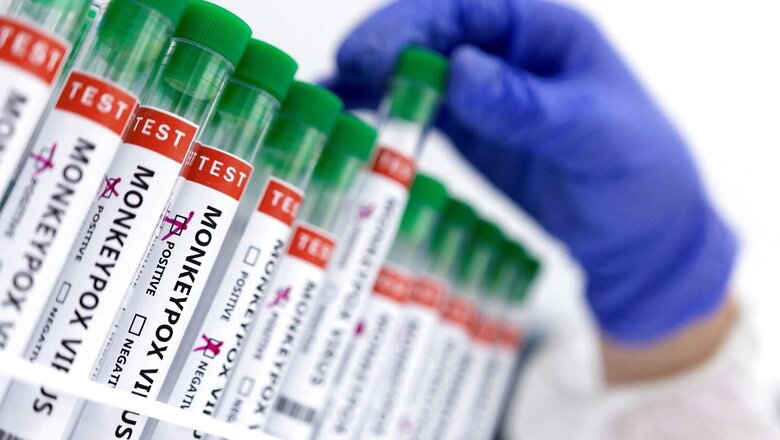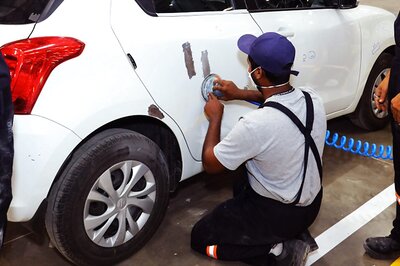
views
The Centre on Monday asked for a strict health screening of all foreign travellers at airports and ports amid an increasing risk of monkeypox in the country. The Union Health Ministry stated that it has asked all airports and ports to ensure the screening of all passengers.
“Centre Reviews Points of Entry (PoEs) Health actions at international airports and ports. State, airport and port health officers advised ensuring health screening of all international travellers to minimise the risk of importation of monkeypox disease,” the ministry said in a statement after a meeting attended by airport and port health officers (APHOs and PHOs), regional directors from regional offices of health and family welfare, and senior officials from International Health Division, and Disaster Management Cell.
They were advised and re-oriented in the clinical presentation of monkeypox disease as per the ministry of health’s ‘Guidelines for Management of Monkeypox disease’.
The Centre has also called for effective coordination with other stakeholder agencies like Immigration at international ports and airports to streamline health screening processes besides ensuring suitable linkages with hospital facilities earmarked to each port of entry for timely referral and isolation. The meeting was attended by senior officials from International Health Division, and Disaster Management Cell.
The advisory comes on a day the country reported a second case of the zoonotic disease in Kerala — the same state that reported India’s first monkeypox case.
The second monkeypox case was confirmed in Kerala’s Kannur district, with state Health Minister Veena George saying that the patient is a 31-year-old man, currently being treated at Pariyaram Medical College. “The patient’s health condition is reported to be satisfactory. Those in close contact with him have been put under surveillance,” she said.
The patient landed at the Mangalore airport in coastal Karnataka from Dubai on July 13. He was admitted to a hospital after he showed symptoms of the zoonotic disease. His samples were sent to NIV, Pune and they tested positive for monkeypox.
The first patient was from Kollam district, who had returned from the UAE.
Monkeypox: its transmission & symptoms
According to WHO, monkeypox is a viral zoonosis (a virus transmitted to humans from animals) with symptoms similar to those seen in the past in smallpox patients, although it is clinically less severe. With the eradication of smallpox in 1980 and the subsequent cessation of smallpox vaccination, monkeypox has emerged as the most important orthopoxvirus for public health.
In the ‘Guidelines on Management of Monkeypox Disease’ issued to states and UTs, the Centre stated that human-to-human transmission occurs primarily through large respiratory droplets generally requiring prolonged close contact. It can also be transmitted through direct contact with body fluids or lesion material, and indirect contact with lesion material, such as through contaminated clothing or linens of an infected person.
The symptoms include lesions that usually begin within 1-3 days of fever onset, lasting for around 2-4 weeks and are often described as painful until the healing phase when they become itchy (in the crust stage). A notable predilection for palm and soles is characteristic of monkeypox, the guidelines stated.
It also said that contacts should be monitored at least daily for the onset of signs/symptoms for 21 days (as per case definition) from the last contact with a patient or their contaminated materials during the infectious period.
(With PTI inputs)
Read all the Latest News, Breaking News, watch Top Videos and Live TV here.




















Comments
0 comment